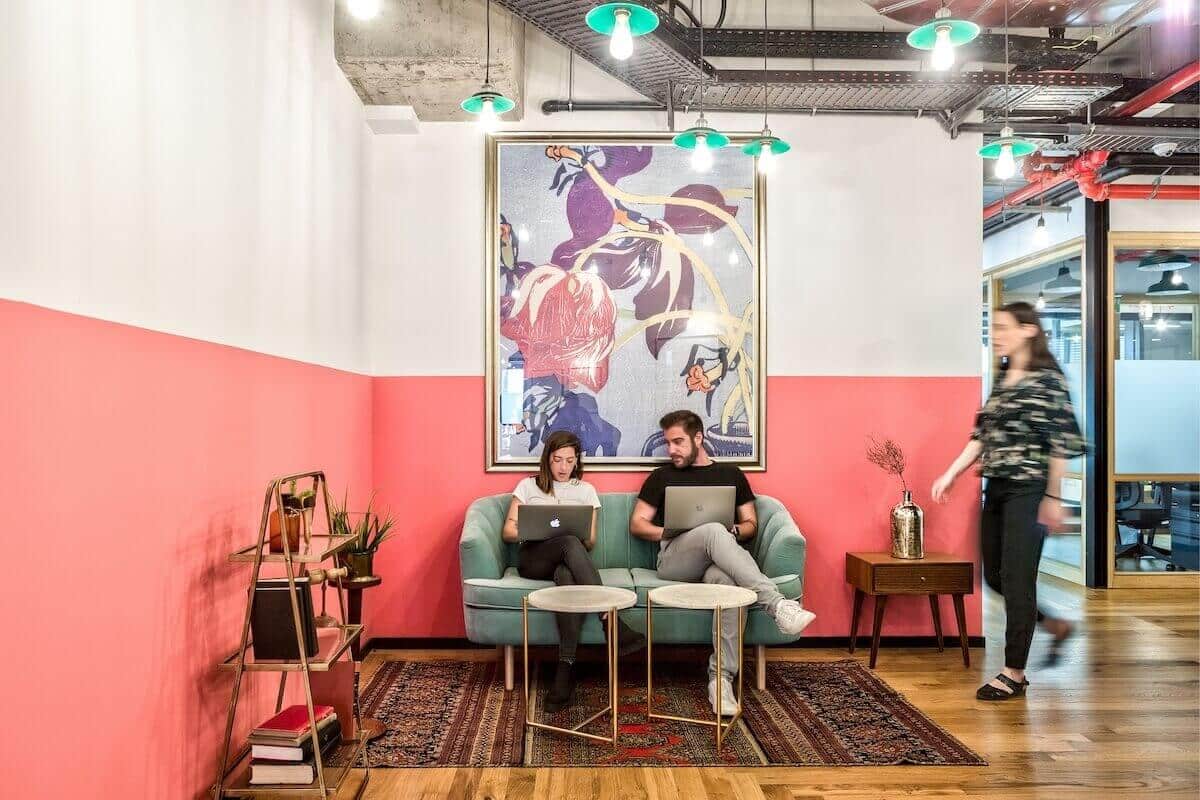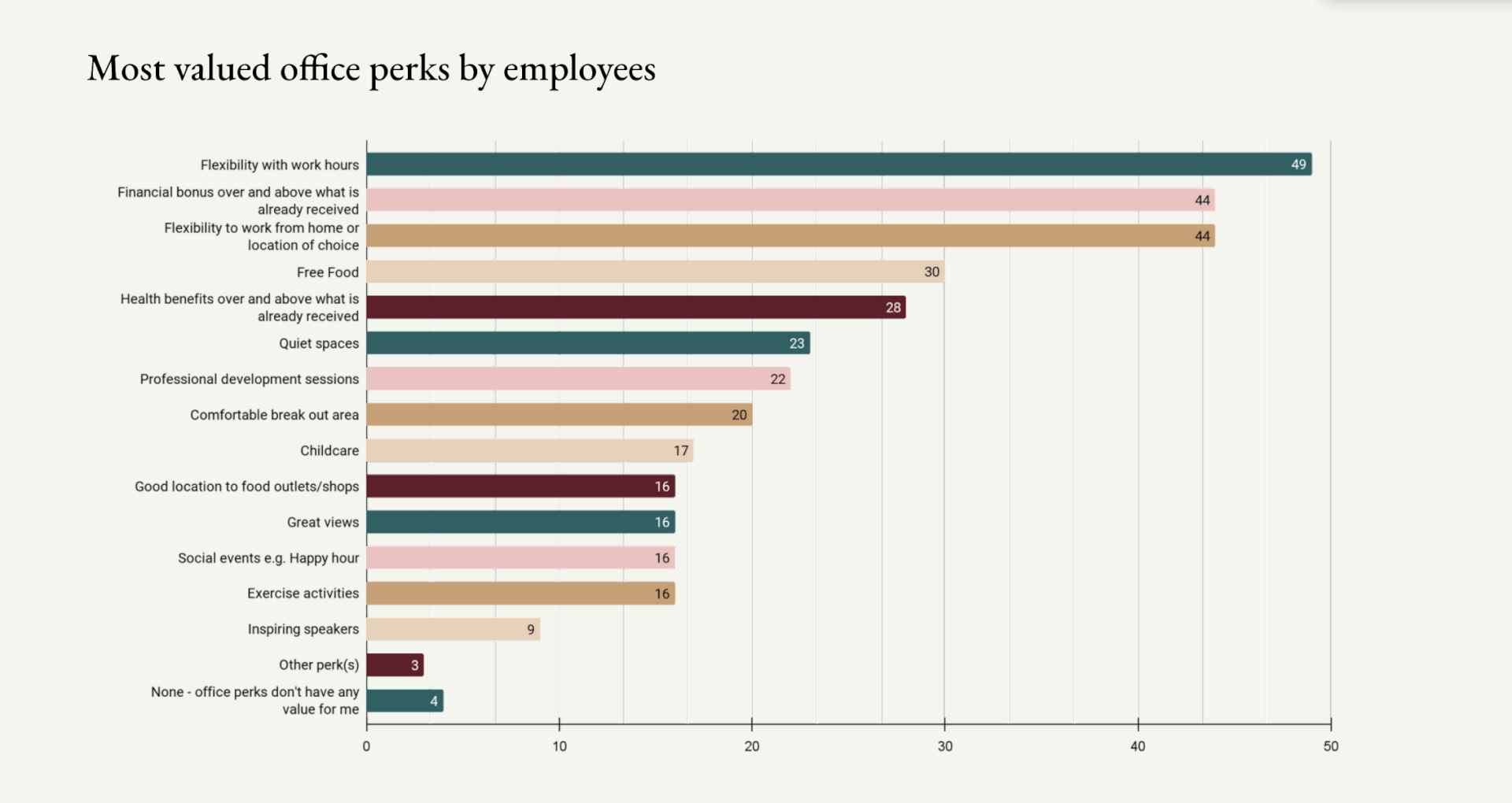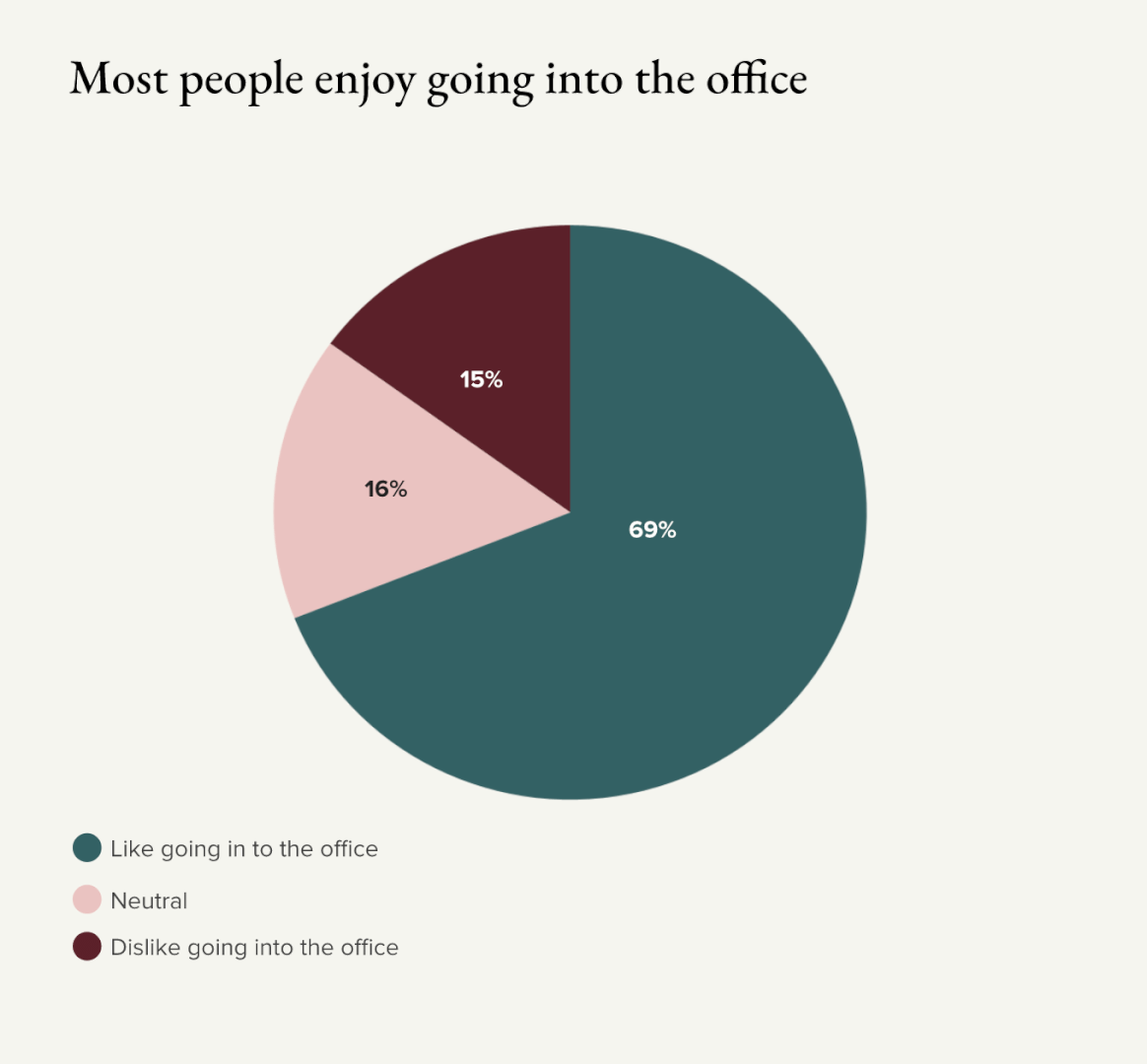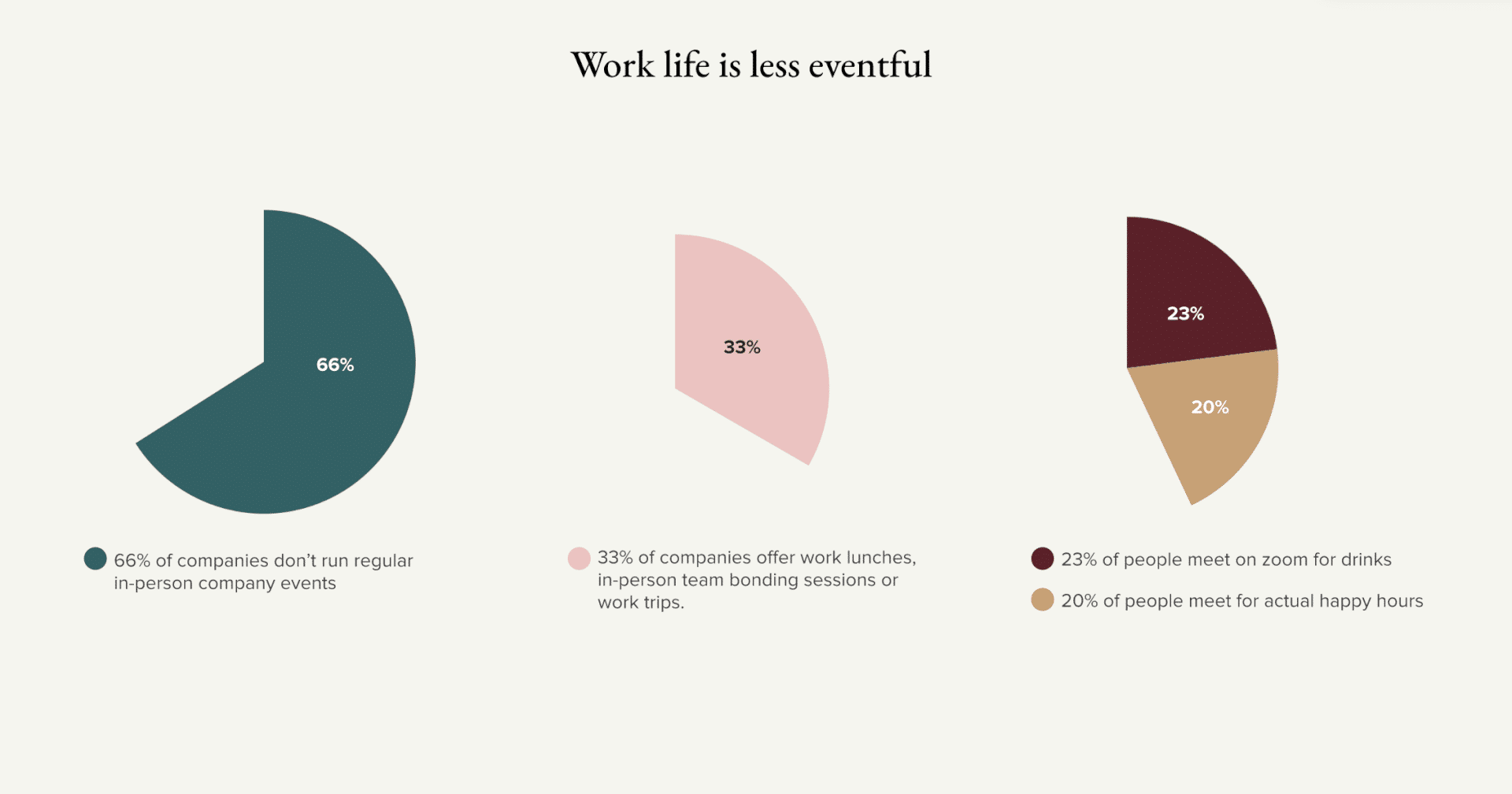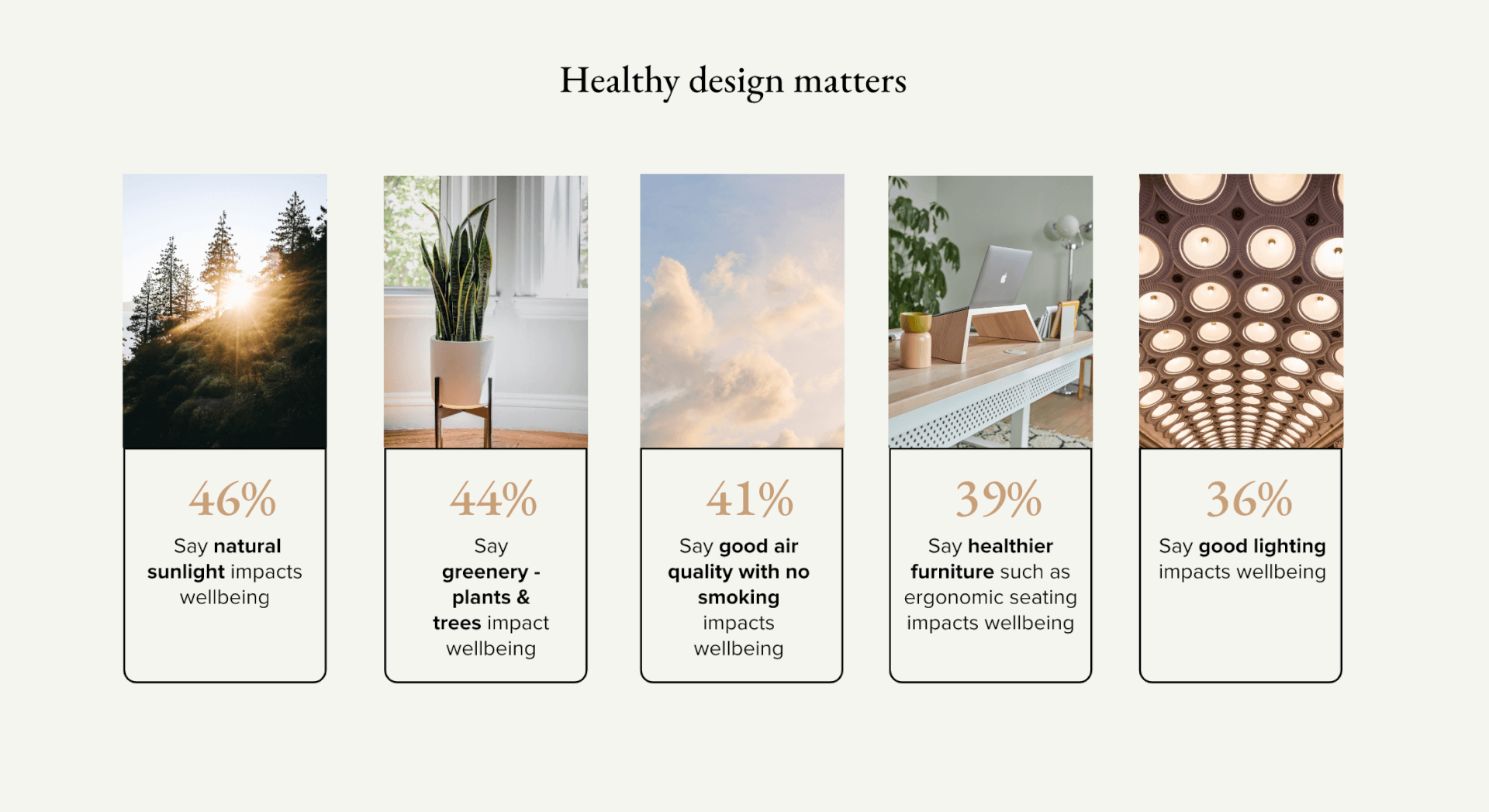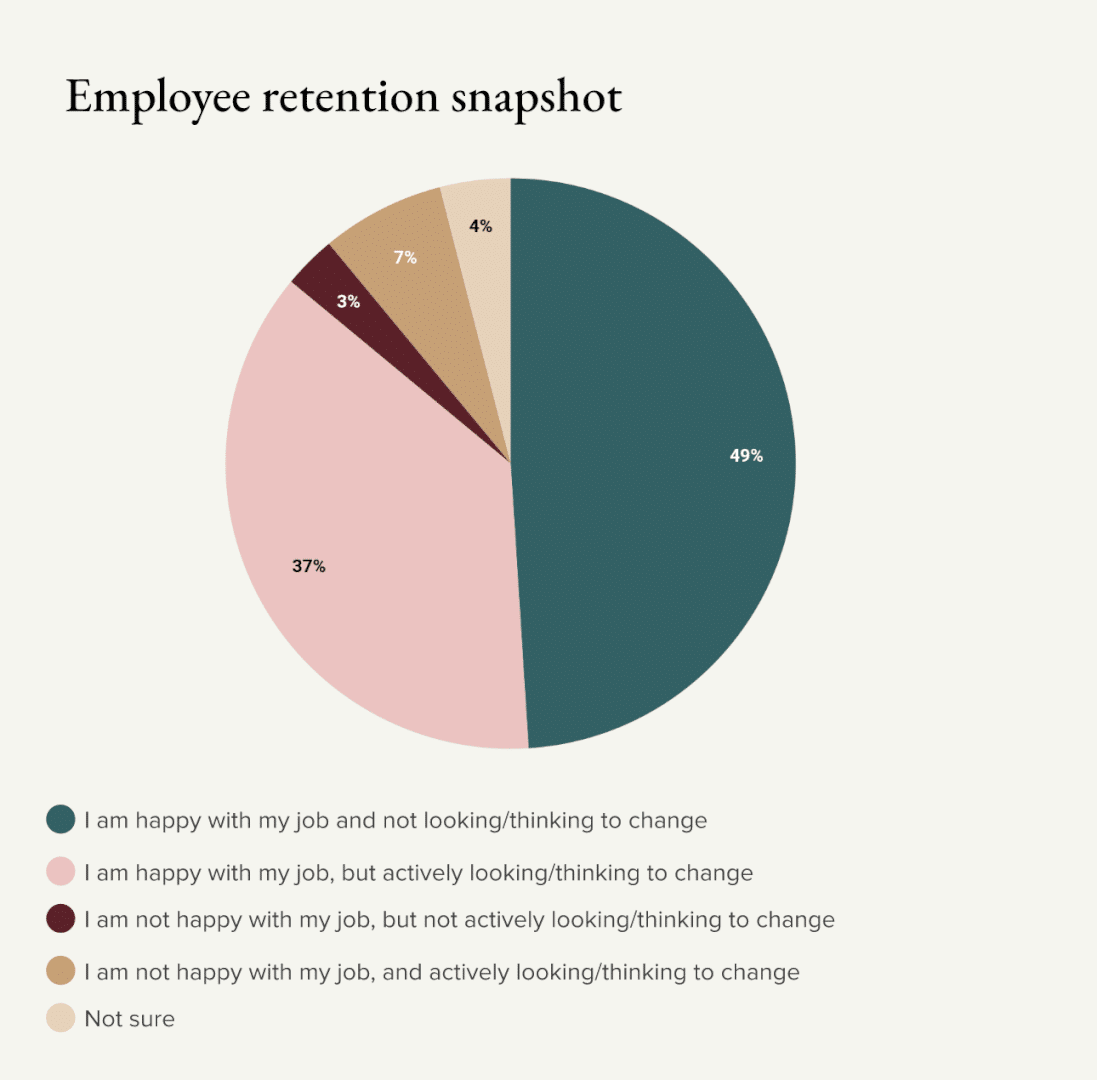
Mindspace Publishes Fascinating New Insights Into Global Work Preferences
Leading flex space provider illuminates emerging employee trends of flexibility, productivity and happiness.
Tel Aviv, Israel – December 20, 2022: Mindspace, the leading global provider of flexible boutique office space, published today the results of its global employee survey. The goal of the survey was to illuminate new work patterns and shed light on both current and aspirational employee dynamics in an ever changing world. The results gave fascinating insights showing how the 9 to 5 job is a dying phenomenon and the hybrid model is here to stay – with employee flexibility being the key determinant in employee satisfaction.
The survey was based on responses from 1470 people who are employed full-time and aged between 21 and 56, from the UK, US, Germany, Poland, Romania, Netherlands and Israel.
“We hope these survey insights will empower companies to rethink their employee experience to attract and retain talent”, said Mindspace CEO and Co-founder Dan Zakai. “They clearly indicate the huge shift in how employees value flexibility at work, as well as the important role that coworking has on productivity, employee wellbeing and belonging.”
To download the full survey results please click here.
Here are the key highlights from the survey:
Flexibility first
An overwhelming majority of more than 9 in 10 people (92%) consider flexibility in the workplace to be important to them. More than half stated that it’s very important. This means giving employees the freedom to choose where to work from and the autonomy to manage their work hours is highly prized. Flexibility ranked as the most important work-related perk, even more so than a financial bonus, free food, health benefits and professional development.
Home versus office?
With the average worker spending 3.7 days in the office each week, it’s clear that work dynamics have permanently shifted to a hybrid model. In fact, our survey showed that only a third still work a full week based in the office, with a fifth only clocking 1 to 2 days there. Interestingly, more people (51%) found that they work more productively in an office, rather than a home (29%) environment. Overall it didn’t matter whether the office was small and private or large and open-plan, it was the place where people managed to get more done.
Most people (69%) said that they like going into the office, with one in four people ‘liking it a lot’. Only 15% disliked going into the office. This data all points to employees needing balance. They want to have the best of both worlds. While sometimes it’s great to skip the commute and enjoy the comfort of working from home, people also enjoy the energy and productivity that arises from being in the office.
Feeling connected
Most people (85%) found that working from home does not impact company culture and they still feel connected to it. However, most workers (60%) do enjoy the social aspects of coming into the office. Over half (51%) like the change of atmosphere that going into the office brings while 47% like having a sense of belonging to a team or company.
Social events at work
A surprising insight to emerge was that companies are no longer investing in regular in-person events. In fact, 66% say their company doesn’t run them, with only around a third of companies offering work lunches, in-person team bonding sessions or work trips. Covid can partly explain this emerging trend, evidenced by slightly more people (23%) meeting in zoom for drinks than for actual happy hours (20%).
Engagement
A whopping 87% feel engaged in their job, with almost a third (31%) feeling very engaged. For those who didn’t feel engaged, the main reasons were dissatisfaction with salary, not feeling appreciated, lack of work-life balance and an uninspiring work environment. Feedback on the subject of ‘office design’ showed it plays an important role in creating that feel-good factor at work, with natural sunlight, greenery and clean air all stated as factors impacting employee wellbeing.
Employee turnover
There was an even balance between employees that were happy and not looking for a job (49%), and those who were seeking a new opportunity. This does imply a high level of turnover, with 44% of employees seeking a new role. However, attention to the factors that contribute to the wellbeing and satisfaction of existing employees, and listening to their changing needs and wants, should help to provide a more stable and committed workforce.
Download the full survey here.
The Mindspace work survey was conducted in collaboration with Onepoll.


